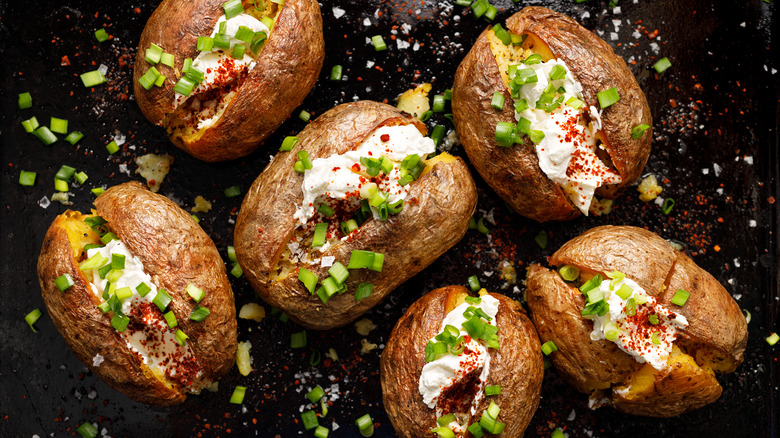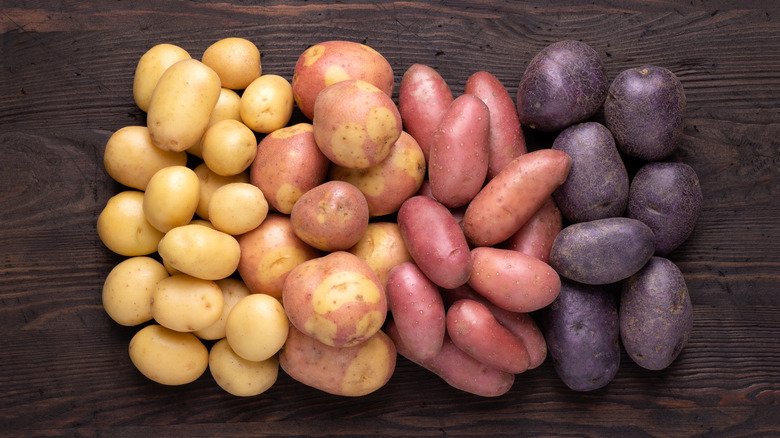The Biggest Reason Your Baked Potatoes Are Mushy
When making baked potatoes, following a written recipe step-by-step is probably the last thing you'd think to do. Aside from the toppings you add, baked potatoes are literally one ingredient. It's easy to simply wrap them up in foil and stick them in the oven, or even opt for popping them in the microwave. Either way, making baked potatoes is not a very involved cooking process.
It may come as a surprise, then, if your baked potatoes turn out mushy for seemingly no reason. According to Bon Appétit, this doesn't just happen at random and is actually due to the type of potatoes you use. Look up any recipe for baked potatoes, and you'll find that they almost always call for large russet potatoes. This is because of the high starch content, the outlet says. When baked, russet potatoes yield a soft and fluffy interior that's also able to hold heavy toppings like sour cream and bacon bits, making them ideal for baked potatoes.
Why can't you use other types of potatoes for baked potatoes?
Potatoes differ in more ways than just color, size, and shape. As Martha Stewart explains, potatoes fall under three different categories: starchy, waxy, and all-purpose. While russet potatoes fall under starchy, other types such as fingerling or red bliss fall under waxy. Unlike starchy potatoes, waxy potatoes are low in starch and high in moisture. Waxy potatoes, therefore, make for baked potatoes that are mushy and gluey instead of light and fluffy.
If you're not that familiar with specific potato varieties, waxy potatoes are still easy to tell apart. The skin is thinner, and they're also smaller and rounder because they're picked a lot earlier. The best way to think about it, according to Bon Appétit, is in terms of size. The bigger the potato, the less likely it's waxy, and the better texture it'll be for baked potatoes. It doesn't get much easier than a baked potato, heck you can even cook them in an air fryer.

